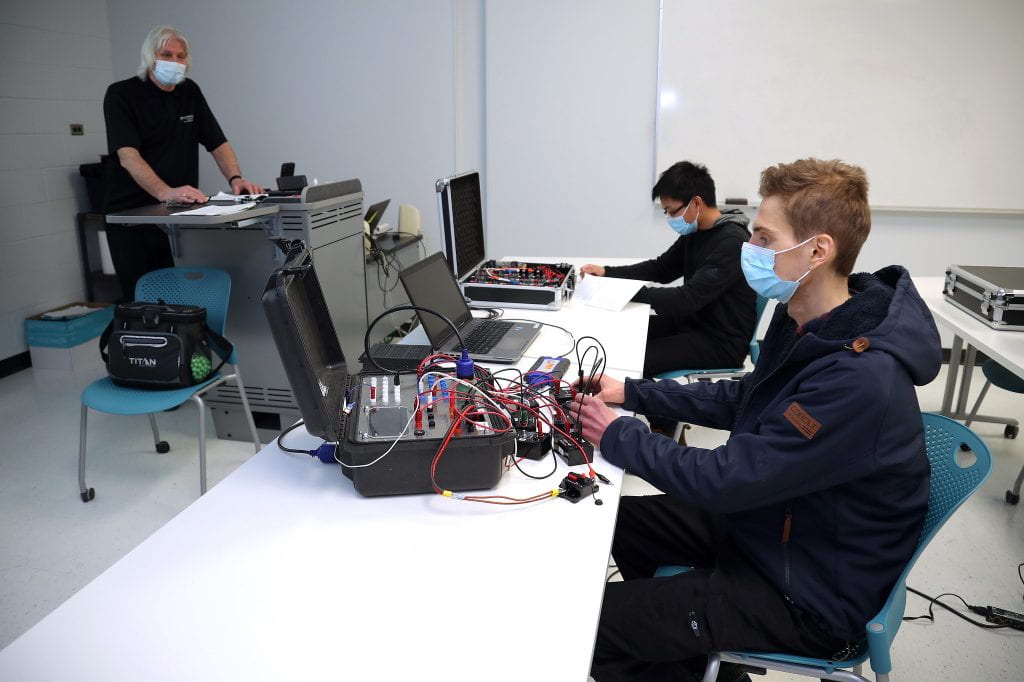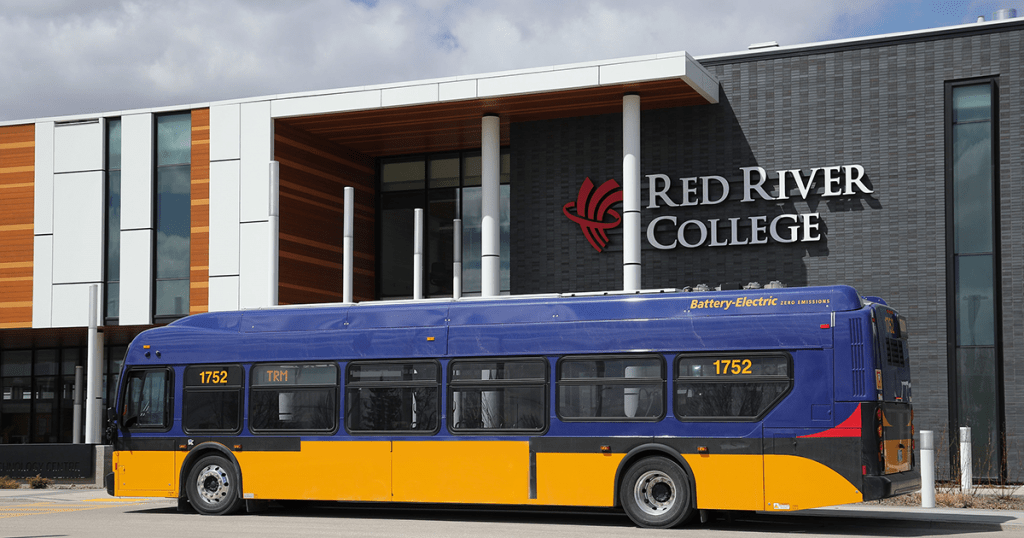RRC and Winnipeg Transit partnership helps bridge e-bus training gap
The rise of clean tech and electric vehicles is much more than a trend – it represents a long-term, sustainable solution to lessening environmental impact by reducing emissions and fuel consumption. As industries adopt electric vehicles, the need for specialized training has increased. The Vehicle Technology & Energy Centre (VTEC) at Red River College (RRC) is a hub for applied research, technical services as well as training for electric and hybrid vehicles.
“RRC was part of the Joint Task Force on Transit Electrification, which assessed the economics and the greenhouse gas emission profiles for electric transit buses (e-buses) relative to diesel buses,” says Jose (Jojo) Delos Reyes, Research Manager, VTEC. “One key component of integrating e-buses into the current fleet is providing training. This is where we saw an opportunity to approach Winnipeg Transit about supplemental training courses.”
Currently New Flyer Industries (New Flyer) provides an intensive e-bus course to transit maintenance technicians across North America. While this training is immersive, the VTEC team saw a need for reskilling and upskilling transit mechanics and technicians in preparation for the New Flyer course.
“For those who have previous experience working with electric buses or vehicles, they may be able to jump right into the manufacturer training. However, a diesel mechanic who has never worked on an electric vehicle, for example, may benefit greatly from supplemental learning,” says Delos Reyes.
A group from the RRC transportation department took the New Flyer e-bus course to determine where knowledge gaps might exist and what information and training would be a beneficial precursor to this course. The overall goal was to develop specialized training to prepare technicians and set them up for success.
After identifying the gap and demonstrating the need for specialized training, VTEC worked closely with RRC transportation department members Tom Grant, Chair of Transportation Heavy Apprenticeships and Trades, Ken Friesen, Program Manager, Dietrich Schellenberg, Academic Coordinator, and Leonard Wiens, Apprenticeship Instructor, to develop the “Intro to Electric Bus Technology” course in collaboration with Winnipeg Transit.
The Intro to Electric Bus Technology course is composed of three one-week modules, focusing on safety aspects, knowledge of electrical fundamentals, and interpreting data communications.
“The transition to electrification brings a rapid shift in safety and technology that our technicians need to be prepared for. This course will introduce technicians to the high voltage electric vehicle systems needed to support both battery electric and fuel-cell battery electric vehicle technologies, and prepare them for the more in-depth manufacturer training,” says Eric Rensfelt, Vehicle Systems Supervisor, Winnipeg Transit. “Safety is paramount, and technicians will need to be comfortable working with the new technology, as well as be able to diagnosis the complex systems through Programmable Logic Controller (PLC) programming and ladder logic. The partnership between Winnipeg Transit and Red River College resulting from this course is the first step in this process.”
The first RRC e-bus training course was slated to start in May 2020, but due to the pandemic, the brakes were temporarily put on the project.

This spring, the first group of trainees completed The Intro to Electric Bus Technology course. As highlighted in the course description: completing this course will provide the strong electrical foundation required for transit technicians to successfully complete the in-depth manufacturer electric bus training, and in turn upskill members of Manitoba’s workforce.

